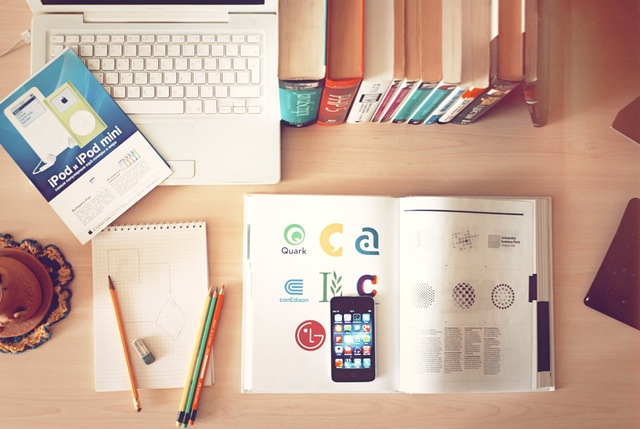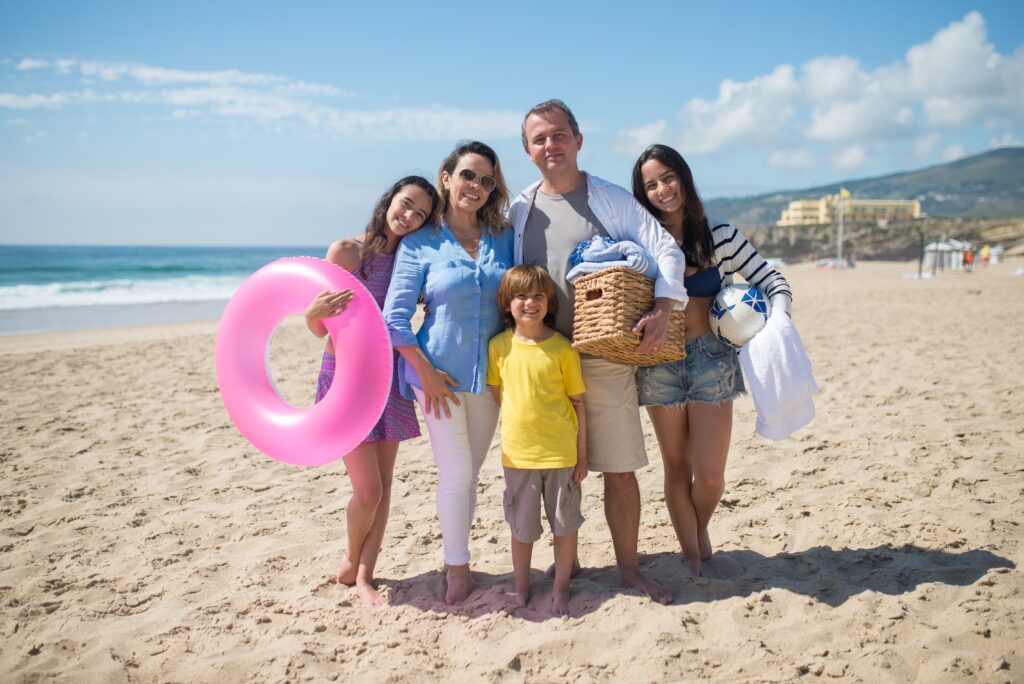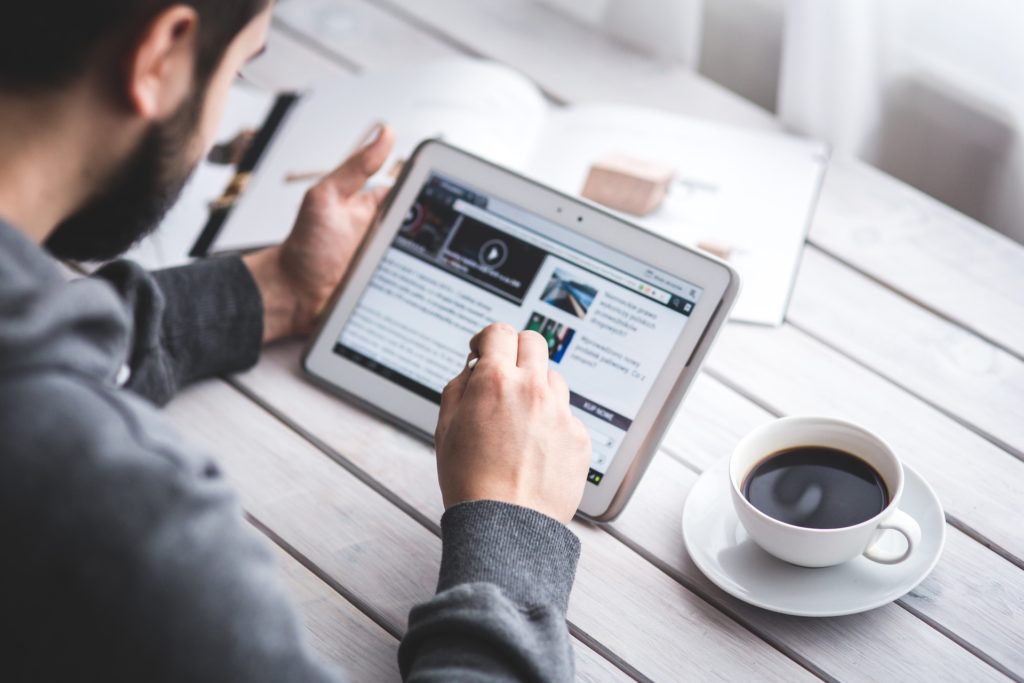Last week, I shared that I had experienced an unexpected and very sudden divorce. What I didn’t share was thanks to the very public nature of my ex-husband’s job, I had a front-row seat to the vitriolic and unethical world of politics and media – and the absolutely corrupt and coordinated relationship between them.
I am fairly public with what I choose to share here with you, but the key word is choose. I have a choice and I have boundaries. Many topics are off-limits and I am the final arbiter of what gets shared and what does not. This is important to me. It is a terrifying feeling to have no power or control over what facts or lies are spread about you, your life, and those you love.
As a result of a dying industry’s last grasp for relevance in a world that has moved on, paired with a gossip-hungry citizenry that feels entitled to your personal life – my life became – quite literally – a living hellscape. I couldn’t go anywhere without being confronted by someone I did not know but knew me and either pitied me (for reasons I didn’t know) or would scream a resounding, “$%@# that guy! We choose you!” (Likewise for reasons I didn’t know). Battle lines were drawn in a battle that simply did not exist.
Otherwise pleasant dinners with people I thought were friends devolved into even more uncomfortable confrontations and confessionals. “We didn’t know if we should tell you, but we heard…[insert something untrue and jaw droopingly painful to hear].” Lies flung at me with conviction caused me to question my own sense of reality and sanity. I began to wonder if I was the one who was an idiot. Did the entire public know something I didn’t? (Spoiler alert: They did not. But I didn’t know that then and it was humiliating beyond measure).
I couldn’t tell fact from fiction and the facts and fiction in question were my own life. People threatened to have photos of events that never happened and tape recordings of conversations that likewise never occurred. It was gaslighting on a scale I’d never experienced.
I couldn’t walk into a grocery store without people whispering about me, some within earshot, so that was pleasant. I even got accosted at a children’s birthday party by a nosey neighbor who wanted intel on my “situation.” He went after a friend of mine when he couldn’t get me to disclose anything fun.
It’s callous, it’s mean, it’s petty, it’s immature, and above all – it’s harmful.
My address was publicly listed. My kid’s name and her school. You had to dig to find some of it, but it was there in black and white. And it was terrifying.
For months, I lived in terror. Every incoming phone call sent my blood pressure skyrocketing, cortisol soaring, and adrenaline spiking. What now! What new horrible information that may-or-may-not be true will you tell me?! What lie do I have to deal with now?! There was endless feigned concern from people I hadn’t heard from in months, who expressed kindness on the surface but really just wanted the tea from me directly. I was drowning in so much cortisol and disgust I couldn’t eat and found myself at 92 lbs. I was so scared and terrorized by the environment around me. Feeling completely powerless at what to do.
My ex and I had rules about not posting our kid or each other on social media. It was a decision we’d made when he got into government. [See: CyberFareeda for amazing resources on how to protect your kids and what NOT to post.] We wanted separation of church and state (plus, with him being in government, I didn’t want his followers following me. Those folks are mean). We have thousands of photos all of which I share with friends and family 24/7, but my kid didn’t choose to be a public figure. Her dad did. Her mom did. She can choose for herself what she wants when she’s old enough to decide.
In politics, you can’t do that. You have to use your “family” as political fodder and proof of your character. I could retire off the number of times I was labeled “difficult” for telling a publication, “No, you cannot have a family photo.” We trust a family man more than a single one. It’s our religious bias and every family can navigate this differently. I’ll tell you for me, you will never see my kid on here of my volition. Only on hers and when she’s old enough to be informed about how to make those decisions and navigate this garbage fire and stand tall amidst this blatant disregard for the humanity of others.
A few weeks ago, I shared a plea to not quit on hope. This week, I am sharing a similar plea: be mindful of what you consume. The majority of what was published about my ex was complete and utter bullshi%$. Made up by junior writers scared to lose their jobs at a dying company in a dying industry. Stories were leaked to said journalists by cowards who we once called friends. Bloggers who lack conviction and thrive off manufacturing outrage had a field day targeting my ex (and me, by extension) using cheap tricks any basic beginner copywriter can use.
Not one – not one – journalist, writer, publicist, media analyst, pundit, staff member, editor, or blogger reached out to speak to me directly. Not. One.
Since I started writing publicly 15+ years ago, I’ve begged people to opt out of this dumpster fire that masquerades as journalism, and (surprise to no one) I’ve not made a single dent in my efforts, other than preaching to the converted.
As I type this, people I love are being sucked into the vortex of manufactured outrage. It doesn’t matter how many times I explain how media works or what goes into writing a headline or framing effects and agenda setting or confirmation bias or just straight-up lies – they’re making a choice that has to do with identity. They’re looking for something, beyond the hijacking of their amygdala.
Ryan Holiday explains this in his book Trust Me I’m Lying, Jonathan Hadit explains some of it in The Righteous Mind. I wrote about this in Why I Am Done With Guest Posting. And I taught it in Headline School. Even mocked it in one of my 2018 pieces in Inc.
There is tons of information and data on this subject none of which have succeeded in getting anyone to actually turn off the news (or what passes as the news). And choose the more painstaking and effortful ways of accruing information such as reading a book, watching CSPAN, taking a class, attending a lecture, asking pointed questions to someone qualified to answer them (and not, say, your uncle or children or friends at dinner), reading journal articles, taking your time before you decide what you think, and questioning the premise of why immediate knowledge of the information is relevant to your day to-day (see Freakonomics episode: Why Do We Really Follow The News? here).
The retort I always hear is from business folks who day trade or investors is that they need to “read the market.” Ok fine, but that’s a different use case than “seeking facts.” I had to watch ads for work, it didn’t make me susceptible to them. When I tell you people’s lives are at stake in this conversation, I’m not using a shred of hyperbole. Jobs, Health, Safety, Marriages, Policy, Children, Safety – they’re all at risk when our institutions continue to wed themselves to the ad model instead of a more sustainable subscription one (or literally anything that doesn’t incentivize clicks and views). No one is brave enough to choose a different metric by which to judge success. Scale, size, clicks, money. We have the technology to choose differently.
Still, I’m not sure our monkey brains will let us. The news would get (whispers) boring. And inconvenient. You’d have to read full pages and paragraphs and add context and nuance and who has the time.
Well, you. You have the time. Not to be all GaryVee about this, but I’m going to lean into his bullsh*t for a moment – only on this point: You made time to binge-watch Succession and The Bachelor. You can find time to watch a 1-hour long documentary or read a book about the Middle East before you forward that TikTok meme your “credible” friend sent you. You don’t want to. (I don’t want to either, so I get it.)
What are you really risking if you opt-out?
If we did a cost-benefit analysis of watching mainstream news vs acquiring information in other healthier ways, what would yours look like?
I’m not convinced anything is changing for the better. I was holding out hope for Medium (that died), now I hope Substack can get there (it’s created a new silo problem, but at least smart people are there), and I’m still a strong proponent of the long-form podcast; and as always, books.
In the meantime, I’m glad my personal life is back out of the limelight. My ex-and-I have managed to be so amicably boring that they’ve moved on to other things. Between disingenuous political players who used my situation to further their agendas and friends-who-weren’t-friends selling information to the lowest bidder, misinformation is the least of my worries here. Our integrity is dead.
That these people can sleep at night worries me.
I’ve argued before that there are no bad people, but there is very bad behavior. I’m concerned with how entrenched we are in this “bad behavior.” We’ve normalized it so much that my story doesn’t even register to many as problematic. It’s just “how it is.” And to quote TSI reader, Matt, “Anytime you hear someone say, ‘but that’s just the way it is’ is a signal to turn and walk away.
Which is precisely what I am choosing to do.
Before I do, here are a few of my most popular pieces on the topic of media literacy and the dumpster fire we call The News. Please share them far and wide:
- Be Weary of Anyone Selling You Certainty
- What Happened When I Stopped Watching The News
- It’s Ok Not To Know Something
- How To Reach Someone Who Doesn’t Want To Listen
- Stop Blaming Advertisers
- Coronavirus is Serious, Panic is Optional
- If You Want to Consume Better, Consume Slower
- Predictably Irrational Behavior
I’m not worried about those of us who feel there is a moral conflict here.
I’m worried about the millions of people who don’t.
I doubt we will change their minds, but we can choose to do something different with ours. Like use it to think critically about what we accept at face value and why. And what the cost of not doing so has been on our society.
To independent thought and seeing the humanity in others,
M




